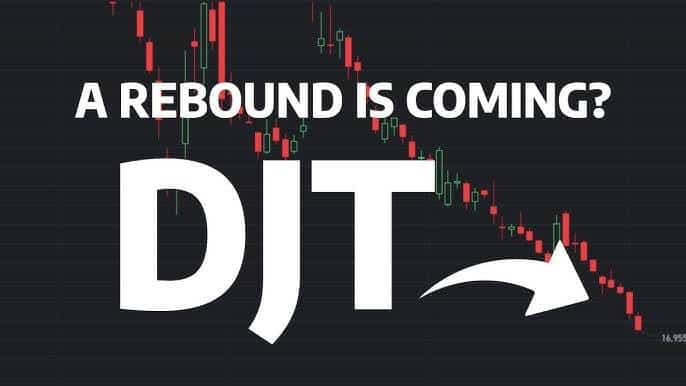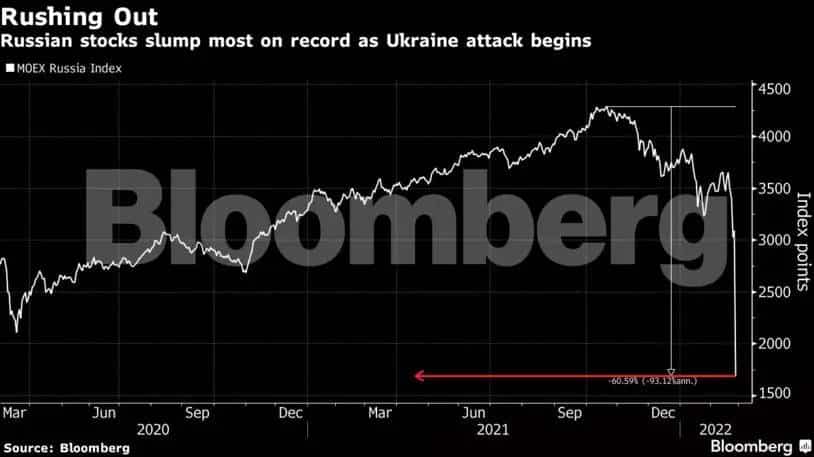Introduction to investing in the stock market in Slovakia
Nestled in the heart of Central Europe, Slovakia presents an intriguing investment landscape for those seeking to diversify their portfolios. As an emerging market, the Slovak stock market offers a unique blend of opportunities and challenges, making it an attractive destination for savvy investors. In this comprehensive guide, we’ll delve into the intricacies of investing in the Slovak stock market, exploring the Bratislava Stock Exchange (BSSE) and its pivotal role in the nation’s financial markets.
Stock Market in Slovakia + Europe
The Slovak stock market is an integral part of the broader European financial ecosystem, with strong ties to regional and global markets. As a member of the European Union (EU) and the Eurozone, Slovakia’s economic policies and regulations align with European standards, fostering an environment conducive to cross-border investments. This integration provides investors with access to a diverse range of investment opportunities while benefiting from the stability and transparency offered by EU regulations.
Top 3 list of major stocks in Slovakia
- Slovnaft, a.s.: A leading integrated petroleum company in Slovakia, Slovnaft is a subsidiary of the Hungarian oil and gas giant MOL Group. Its shares are traded on the BSSE and offer exposure to the energy sector.
- Všeobecná úverová banka, a.s. (VUB): One of the largest commercial banks in Slovakia, VUB is a subsidiary of the Italian banking group Intesa Sanpaolo. Its shares are listed on the BSSE, providing investors with exposure to the financial services sector.
- Slovenské Elektrárne, a.s.: The largest electricity producer in Slovakia, Slovenské Elektrárne operates nuclear, thermal, and hydroelectric power plants. Its shares are traded on the BSSE, offering investors a stake in the country’s energy infrastructure.
Understanding the Bratislava Stock Exchange and its role in the Slovakian financial markets
The Bratislava Stock Exchange (BSSE) is the primary stock exchange in Slovakia and plays a pivotal role in the country’s financial markets. Established in 1991, the BSSE serves as a platform for trading equities, bonds, and other financial instruments issued by Slovak and international companies. It operates under the supervision of the National Bank of Slovakia (NBS) and adheres to the highest standards of transparency and market integrity.
Overview of the Slovak stock market regulations and regulatory bodies
The Slovak stock market is governed by a robust regulatory framework overseen by various authorities. The primary regulatory body is the National Bank of Slovakia (NBS), which is responsible for supervising financial institutions, including the BSSE, and ensuring market stability. Additionally, the Ministry of Finance and the Central Securities Depository (CDCP) play crucial roles in shaping policies and regulations related to securities trading and settlement.
Top list of stock index in Slovakia
- SAX Index: The SAX (Slovak Share Index) is the primary benchmark index of the Bratislava Stock Exchange, tracking the performance of the most liquid and capitalized stocks listed on the exchange.
- SXCP Index: The SXCP (Slovak Traded Index) is a capitalization-weighted index comprising all stocks traded on the BSSE, providing a comprehensive representation of the Slovak stock market.
- SXXP Index: The SXXP (Slovak Blue-Chip Index) is a price-weighted index that includes the most prominent and liquid blue-chip companies listed on the BSSE, offering exposure to the country’s largest and most established corporations.
The Slovak Securities Market and its importance for investors
The Slovak Securities Market is a crucial component of the country’s financial ecosystem, facilitating the efficient allocation of capital and providing investment opportunities for both domestic and international investors. This market encompasses various asset classes, including equities, bonds, and derivatives, enabling investors to diversify their portfolios and tailor their investment strategies according to their risk profiles and investment objectives.
Investing in Slovakian publicly traded companies: opportunities and challenges
Investing in Slovakian publicly traded companies presents a unique set of opportunities and challenges. On the one hand, investors can gain exposure to a diverse range of sectors, including energy, banking, telecommunications, and manufacturing, capitalizing on the country’s economic growth and development. However, it is essential to carefully evaluate the risks associated with investing in emerging markets, such as currency fluctuations, political instability, and regulatory changes.
How to start investing in the Slovak stock market: a step-by-step guide
To embark on your journey of investing in the Slovak stock market, follow these steps:
- Open a Brokerage Account: Select a reputable brokerage firm that offers access to the Bratislava Stock Exchange and international markets. Ensure that the broker is licensed and regulated by the appropriate authorities.
- Conduct Thorough Research: Analyze the Slovak market, economic indicators, and individual companies you are interested in investing in. Utilize resources such as financial reports, news articles, and analyst reports to make informed decisions.
- Develop an Investment Strategy: Determine your investment goals, risk tolerance, and time horizon. Decide whether you want to pursue a long-term buy-and-hold strategy or engage in more active trading.
- Fund Your Account: Transfer funds to your brokerage account using a secure payment method, such as a bank transfer or electronic payment.
- Place Your Trades: Once you have identified suitable investment opportunities, place your buy and sell orders through your brokerage platform or with the assistance of a broker.
- Monitor Your Investments: Regularly review the performance of your investments and adjust your strategy as needed based on market conditions and your investment objectives.
Key factors to consider when investing in Slovakia: economic indicators and market trends
When investing in the Slovak stock market, it is crucial to consider various economic indicators and market trends that can impact your investment decisions. Some key factors to monitor include:
- Gross Domestic Product (GDP) Growth: Slovakia’s GDP growth rate provides insights into the overall health of the economy and can influence corporate profitability and stock market performance.
- Inflation Rate: Monitoring inflation rates is essential, as it can impact consumer spending, interest rates, and the overall cost of doing business in Slovakia.
- Unemployment Rate: Low unemployment rates generally indicate a robust economy and strong consumer demand, which can positively impact corporate earnings and stock prices.
- Interest Rates: Changes in interest rates can affect borrowing costs for businesses and consumers, potentially impacting stock valuations and investment decisions.
- Currency Fluctuations: As an export-driven economy, fluctuations in the value of the Euro can significantly impact the competitiveness of Slovak companies in international markets.
Investing in the Slovak Stock Exchange index and its potential returns
Investing in the Slovak Stock Exchange index, such as the SAX Index, can provide investors with broad exposure to the Slovak stock market. Index investing offers several advantages, including diversification, low costs, and the potential for long-term growth. However, it is essential to carefully analyze the historical performance and risk characteristics of the index before making an investment decision.
Investment strategies for the Slovak stock market: long-term vs. short-term approaches
Investors can adopt various strategies when investing in the Slovak stock market, ranging from long-term buy-and-hold approaches to more active short-term trading strategies. Long-term investing involves holding stocks for an extended period, typically several years, with the goal of capitalizing on the growth potential of companies and the overall market. This approach is well-suited for investors with a higher risk tolerance and a longer investment horizon.
On the other hand, short-term trading strategies involve actively buying and selling stocks over shorter time frames, aiming to profit from market fluctuations and price movements. These strategies require a higher level of market knowledge, technical analysis skills, and a willingness to take on higher risks.
Investors should carefully evaluate their investment objectives, risk tolerance, and available resources before selecting an appropriate investment strategy for the Slovak stock market.
Risks and challenges of investing in the Slovak stock market
While investing in the Slovak stock market presents attractive opportunities, it is essential to be aware of the potential risks and challenges. Some of the key risks include:
- Liquidity Risk: The Slovak stock market may experience periods of low trading volume, making it challenging to buy or sell securities at desired prices.
- Currency Risk: Fluctuations in the value of the Euro relative to other currencies can impact the returns of foreign investors.
- Political and Regulatory Risk: Changes in government policies, regulations, or political instability can introduce uncertainty and volatility into the market.
- Concentration Risk: The Slovak stock market may be concentrated in certain sectors or industries, exposing investors to heightened risks associated with those sectors.
To mitigate these risks, investors should diversify their portfolios, conduct thorough due diligence, and closely monitor market developments and regulatory changes.
Investment opportunities beyond the Bratislava Stock Exchange: exploring other financial markets in Slovakia
While the Bratislava Stock Exchange is the primary hub for equity trading in Slovakia, investors can also explore other financial markets and investment opportunities within the country. These include:
- Bond Market: Slovakia has an active bond market, offering both government and corporate bonds, which can provide fixed-income investment opportunities.
- Real Estate Market: Investing in Slovak real estate, either directly or through real estate investment trusts (REITs), can offer potential for capital appreciation and rental income.
- Private Equity and Venture Capital: Slovakia has a growing startup ecosystem, presenting opportunities for investors to participate in early-stage companies through private equity or venture capital funds.
- Alternative Investments: Investors can consider alternative investments such as commodities, precious metals, or cryptocurrency markets, which can provide diversification and potential hedging opportunities.
Diversifying across different asset classes and markets can help investors mitigate risks and potentially enhance their overall investment returns.
unlocking the potential of the Slovak stock market
Investing in the Slovak stock market presents a unique opportunity for investors seeking to diversify their portfolios and capitalize on the growth potential of an emerging market. By understanding the intricacies of the Bratislava Stock Exchange, navigating the regulatory landscape, and adopting well-informed investment strategies, investors can unlock the potential of the Slovak financial markets.
However, it is essential to approach this market with caution, conducting thorough research, managing risks, and seeking professional guidance when necessary. By embracing a disciplined and well-informed approach, investors can potentially reap the rewards of investing in the Slovak stock market while contributing to the growth and development of the country’s economy.
Are you ready to embark on your investment journey in the Slovak stock market? Take the first step by opening a brokerage account with a reputable firm that provides access to the Bratislava Stock Exchange. Explore our comprehensive investment solutions and benefit from expert guidance to navigate the opportunities and challenges of investing in Slovakia. Visit our website or contact our financial advisors today to learn more about how we can support your investment goals.
















































